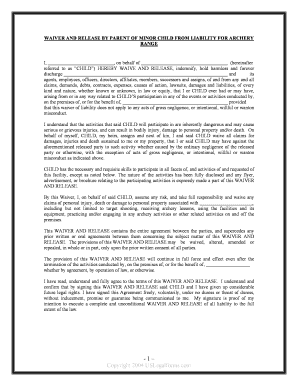
Get the free homeowners association hoa form
Show details
Assessment Fee Notice of Homeowners Association The semiannual assessment fee is due on (date). This fee will cover the 6-month period of (date) to (date). Assessment Fee notices and a copy of the
We are not affiliated with any brand or entity on this form
Get, Create, Make and Sign

Edit your homeowners association hoa form form online
Type text, complete fillable fields, insert images, highlight or blackout data for discretion, add comments, and more.

Add your legally-binding signature
Draw or type your signature, upload a signature image, or capture it with your digital camera.

Share your form instantly
Email, fax, or share your homeowners association hoa form form via URL. You can also download, print, or export forms to your preferred cloud storage service.
Editing homeowners association hoa online
To use the professional PDF editor, follow these steps below:
1
Log in. Click Start Free Trial and create a profile if necessary.
2
Upload a document. Select Add New on your Dashboard and transfer a file into the system in one of the following ways: by uploading it from your device or importing from the cloud, web, or internal mail. Then, click Start editing.
3
Edit fee association hoa form. Replace text, adding objects, rearranging pages, and more. Then select the Documents tab to combine, divide, lock or unlock the file.
4
Save your file. Select it from your list of records. Then, move your cursor to the right toolbar and choose one of the exporting options. You can save it in multiple formats, download it as a PDF, send it by email, or store it in the cloud, among other things.
With pdfFiller, dealing with documents is always straightforward. Now is the time to try it!
How to fill out homeowners association hoa form

How to fill out homeowners association hoa?
01
Obtain the necessary forms from your homeowners association (HOA).
02
Carefully read through all the instructions provided with the forms.
03
Gather all the required documents, such as proof of ownership, identification, and any other requested information.
04
Begin filling out the forms, starting with your personal information, property details, and contact information.
05
Provide accurate and complete information for each section of the form, ensuring no omission or errors.
06
If there are any specific requirements or guidelines mentioned in the instructions, follow them accordingly.
07
Double-check all the information filled in the forms for accuracy and completeness.
08
Review any additional documents or attachments that need to be submitted along with the forms.
09
Make copies of all the completed forms and documents before submitting them to the HOA.
10
Submit the filled-out forms and required documents to the HOA as per the designated method stated in the instructions.
Who needs homeowners association hoa?
01
Homeowners who live in a community or neighborhood that has an HOA.
02
Individuals who own property or dwellings in a subdivision or planned community.
03
Those interested in being part of a cohesive community with shared amenities, rules, and regulations.
04
Residents who want the benefit of maintenance and upkeep of common areas, such as parks, pools, or landscaping.
05
Homeowners who would like to participate in decision-making processes regarding the community's management, rules, and fees.
06
People who value the enforcement of rules to maintain a certain standard of living and protect property values.
07
Those seeking opportunities for community involvement, social events, and a sense of belonging within their neighborhood.
Fill assessment homeowners association : Try Risk Free
For pdfFiller’s FAQs
Below is a list of the most common customer questions. If you can’t find an answer to your question, please don’t hesitate to reach out to us.
How to fill out homeowners association hoa?
1. Contact your HOA board or management company to obtain the appropriate forms and instructions for filling out your HOA paperwork.
2. Fill out all the necessary forms, such as the HOA application, an annual assessment form, and any other forms required by your HOA.
3. Submit the forms and any other required documents to your HOA board or management company.
4. Pay any applicable fees associated with your HOA forms.
5. Follow the instructions provided by your HOA board or management company for any additional steps you may need to take to complete the process.
What is the purpose of homeowners association hoa?
The purpose of a Homeowners Association (HOA) is to maintain and promote the safety, security, and quality of life for a residential community. This includes managing the common areas, enforcing rules and regulations, and providing services for the community. HOA's also provide a forum for communication between homeowners and the board of directors.
When is the deadline to file homeowners association hoa in 2023?
The deadline for filing homeowners association (HOA) fees in 2023 will depend on the specific association's bylaws. Generally, the fees are due on or before the first day of January of the year in question. It is best to check with the association's Board of Directors for the exact deadline.
What is the penalty for the late filing of homeowners association hoa?
The penalty for late filing of HOA fees varies depending on the individual HOA’s governing documents. In some cases, homeowners may be responsible for paying late fees and/or interest charges for overdue payments. In other cases, a homeowner may face suspension of HOA privileges, such as the use of amenities or the right to vote on HOA matters. In some cases, a homeowner may even face legal action if HOA fees are not paid.
What is homeowners association hoa?
A homeowners association (HOA) is an organization in a residential community or neighborhood that is typically formed by the developer or builder of the community. The purpose of an HOA is to establish and enforce rules and regulations for the community in order to maintain and enhance property values, as well as to provide common amenities and services to residents.
Homeowners who live within an HOA are typically required to pay mandatory fees, referred to as HOA dues, in order to fund the association's activities and maintenance of common areas such as parks, swimming pools, clubhouses, or landscaping. The association is governed by a board of directors, which is usually comprised of elected homeowners who make decisions on behalf of the community.
HOAs typically establish guidelines and restrictions for the exterior appearance of homes, landscaping, parking, pets, or even how the property can be used. Violation of these rules can result in penalties or fines. Additionally, the board may be responsible for enforcing neighborhood maintenance standards and resolving disputes among homeowners.
While HOAs can provide benefits such as community amenities and maintaining property values, they can also be seen as restrictive by some homeowners who prefer more autonomy in the management of their properties.
Who is required to file homeowners association hoa?
Homeowners associations (HOAs) are typically required to file certain documents with the appropriate state or local authorities. The specific requirements can vary based on the jurisdiction, but generally, the following entities are required to file:
1. Nonprofit HOAs: If the HOA is organized as a nonprofit corporation, it is usually required to file annual reports and updates with the state corporation or secretary of state office. These filings generally include information about the HOA's board of directors, financial statements, and any important changes or updates.
2. HOAs with Legal Entities: Some HOAs are structured as separate legal entities, such as limited liability companies (LLCs) or cooperative associations. In such cases, the HOA is typically required to comply with the filing and reporting requirements applicable to that specific legal entity. This may include registering with the state, filing annual reports, maintaining accounting records, and paying taxes.
3. HOAs with Tax-Exempt Status: If the HOA has obtained tax-exempt status under the Internal Revenue Code, it may be required to file an annual information return (Form 990) with the Internal Revenue Service (IRS). This form provides details about the HOA's finances, activities, and governance.
It is important to note that the specific filing requirements for HOAs can vary significantly based on the jurisdiction, size, and structure of the association. HOAs should consult with legal professionals, accountants, or experts familiar with HOA law to ensure compliance with all relevant regulations and obligations.
What information must be reported on homeowners association hoa?
The specific information required to be reported by a homeowner's association (HOA) may vary depending on the jurisdiction and the governing documents of the HOA. However, some common elements of HOA reporting include:
1. Financial statements: HOAs are typically required to prepare and present financial statements that show the association's income, expenses, assets, liabilities, and reserves. These statements should be prepared in accordance with generally accepted accounting principles (GAAP) and may include a balance sheet, income statement, and cash flow statement.
2. Budget: HOAs are generally required to prepare an annual budget that outlines projected income and expenses for the upcoming year. The budget should include anticipated costs for maintenance, repairs, insurance, landscaping, management fees, and other necessary expenditures.
3. Meeting minutes: HOAs must maintain and report the minutes of their member and board meetings. These minutes should document the decisions made, discussions had, and any actions taken during the meetings. Meeting minutes provide transparency and ensure that all members are aware of the association's activities.
4. Rules and regulations: HOAs typically have a set of rules and regulations that govern the community. These rules may cover aspects such as architectural guidelines, pet policies, noise restrictions, and parking regulations. It is important for the HOA to keep members informed of these rules and any changes or updates.
5. Assessments and dues: HOAs collect regular assessments or dues from members to cover the costs of operating and maintaining the community. The HOA should provide periodic reports to members detailing the amount of assessments, due dates, and any delinquencies. It is important for members to understand their financial obligations to the HOA.
6. Governing documents: The HOA should make available copies of its governing documents, such as the Declaration of Covenants, Conditions, and Restrictions (CC&Rs), bylaws, and any amendments or changes to these documents. Members should have access to these documents to understand the rules and regulations governing the community.
It is essential for homeowners and potential buyers to review the specific reporting requirements outlined in the HOA's governing documents and applicable local laws to understand the full scope of required reporting.
Where do I find homeowners association hoa?
With pdfFiller, an all-in-one online tool for professional document management, it's easy to fill out documents. Over 25 million fillable forms are available on our website, and you can find the fee association hoa form in a matter of seconds. Open it right away and start making it your own with help from advanced editing tools.
How do I execute notice hoa online?
pdfFiller has made it easy to fill out and sign fee homeowners association hoa. You can use the solution to change and move PDF content, add fields that can be filled in, and sign the document electronically. Start a free trial of pdfFiller, the best tool for editing and filling in documents.
How do I fill out homeowner lists on an Android device?
Use the pdfFiller app for Android to finish your hoa form. The application lets you do all the things you need to do with documents, like add, edit, and remove text, sign, annotate, and more. There is nothing else you need except your smartphone and an internet connection to do this.
Fill out your homeowners association hoa form online with pdfFiller!
pdfFiller is an end-to-end solution for managing, creating, and editing documents and forms in the cloud. Save time and hassle by preparing your tax forms online.

Notice Hoa is not the form you're looking for?Search for another form here.
Keywords relevant to assessment hoa form
Related to fee homeowners
If you believe that this page should be taken down, please follow our DMCA take down process
here
.
























